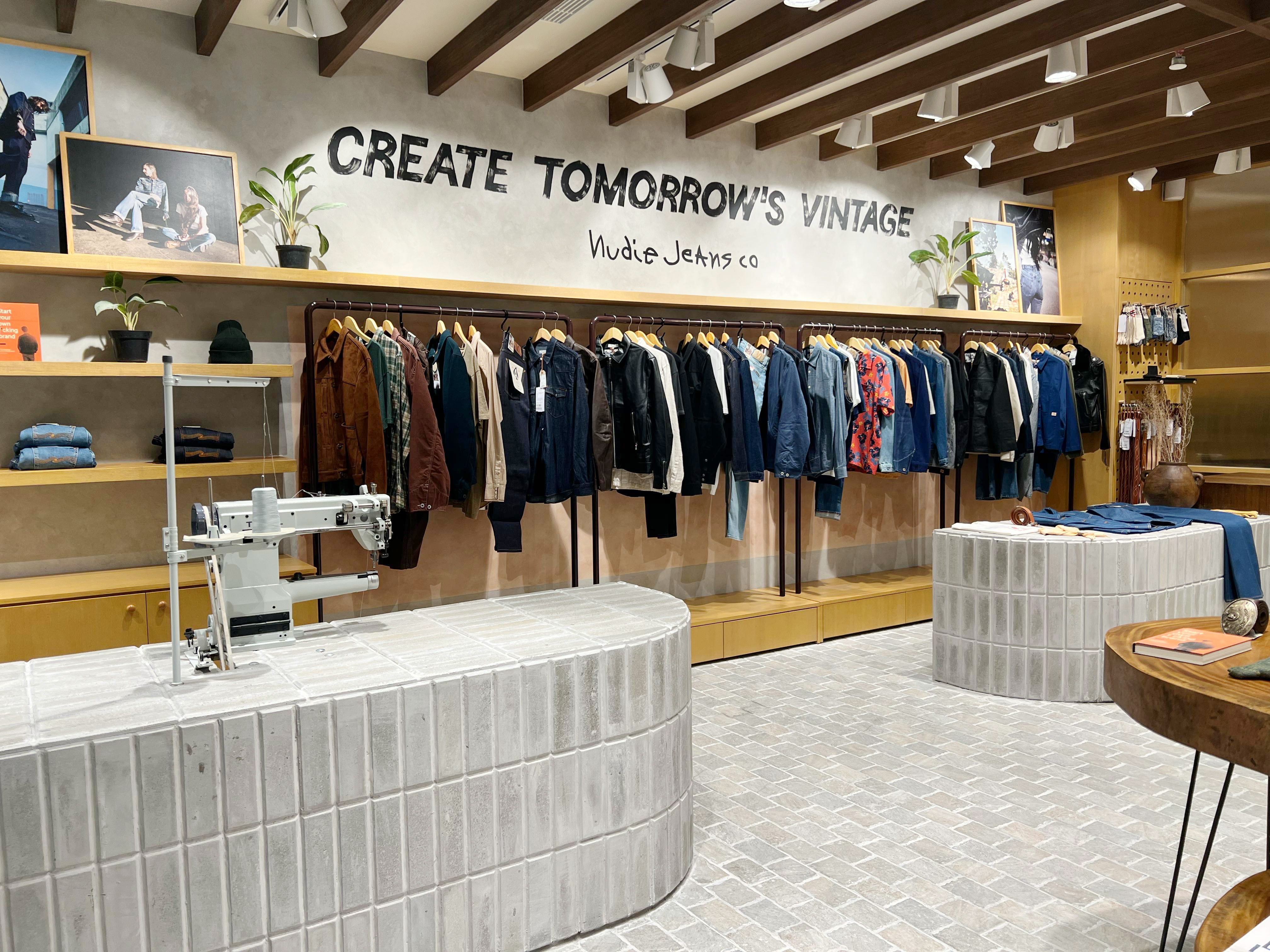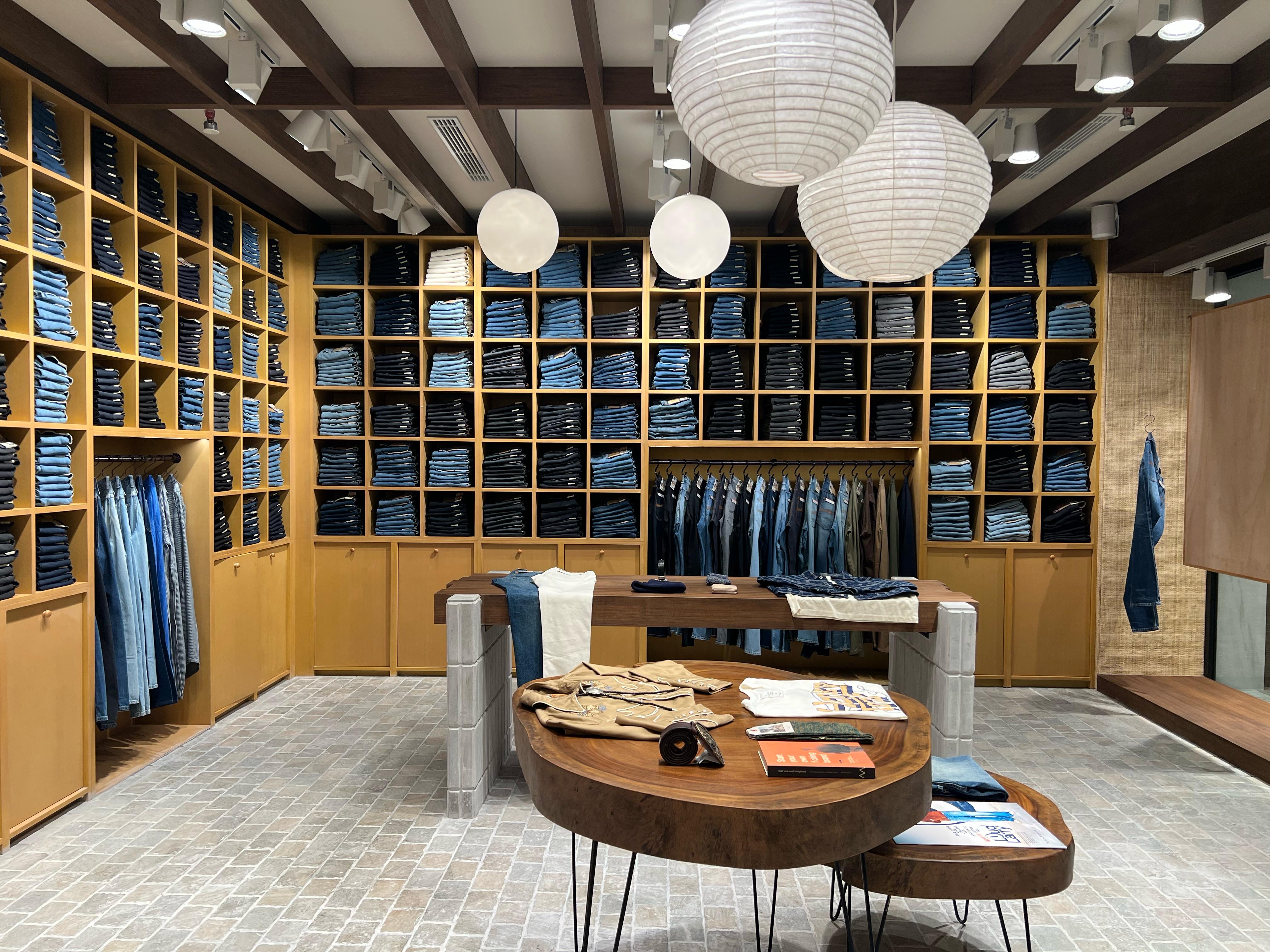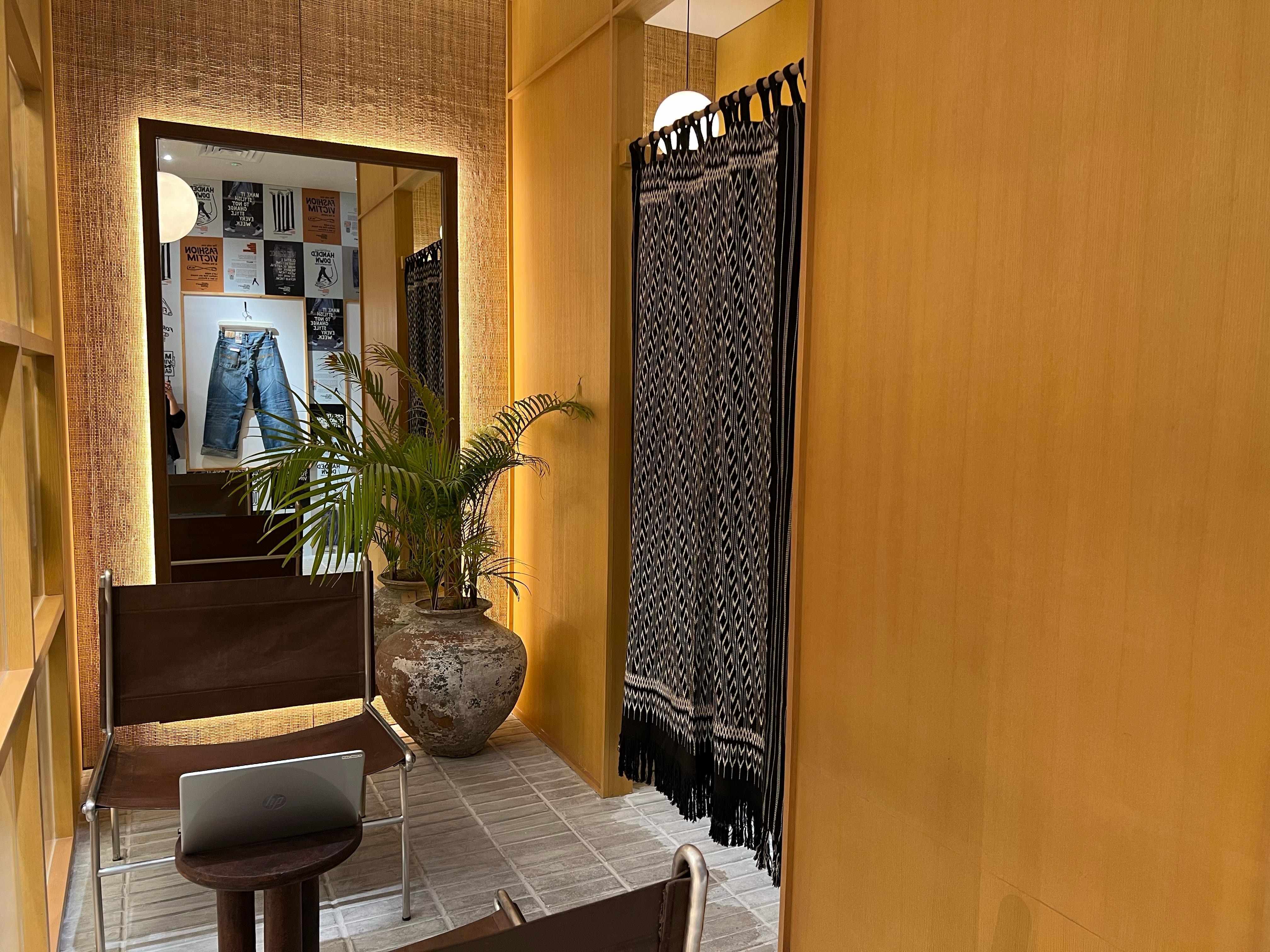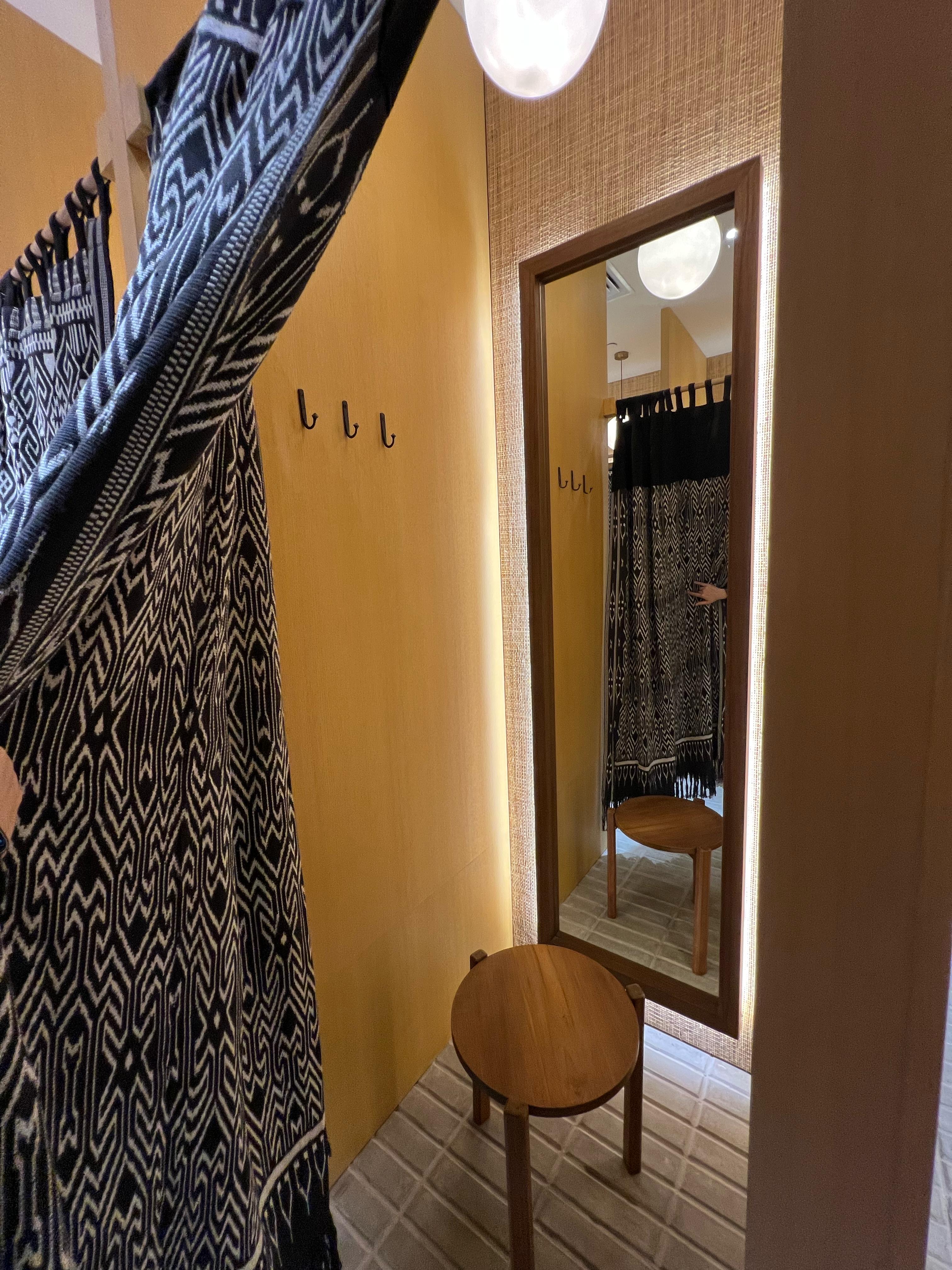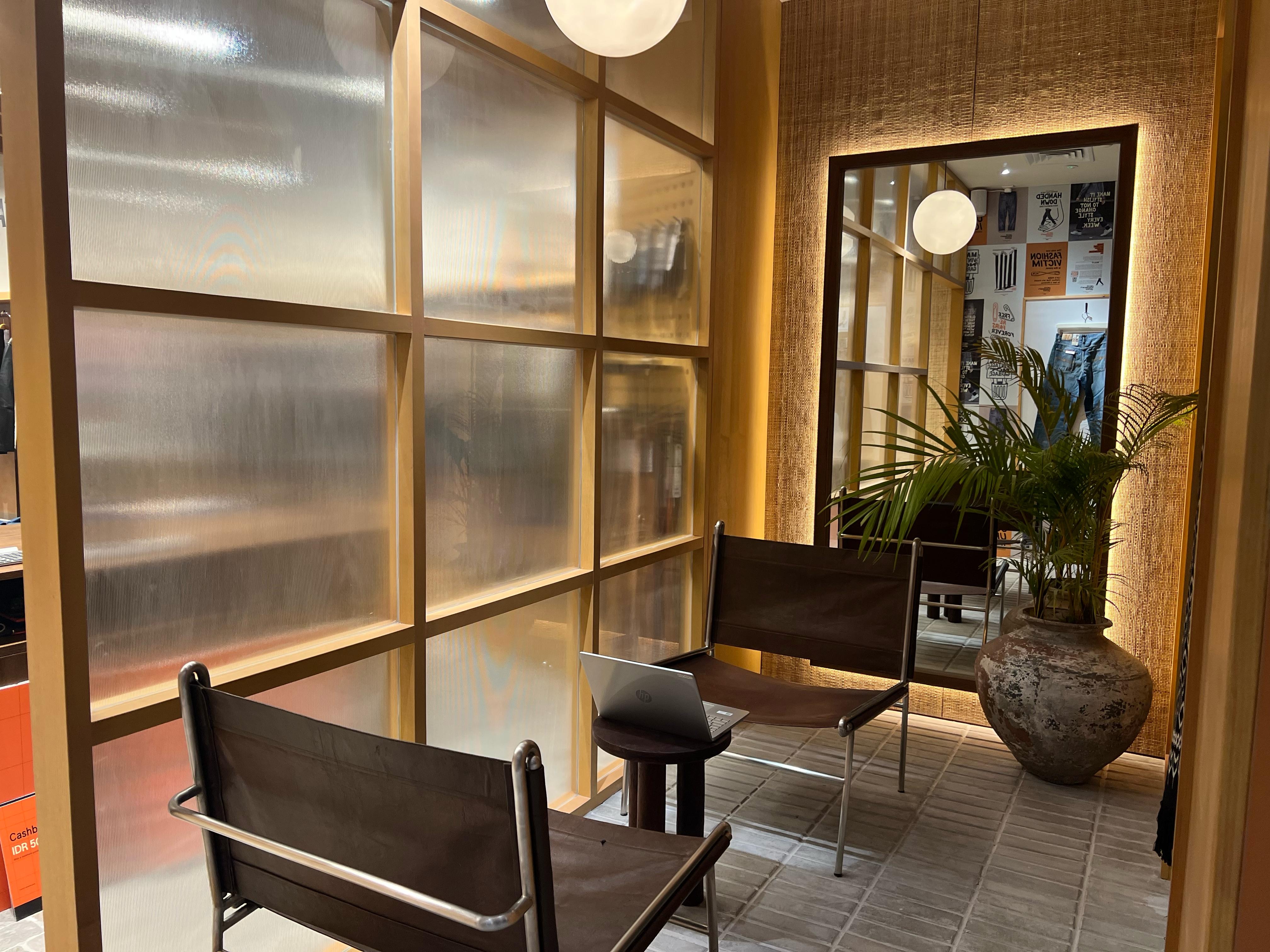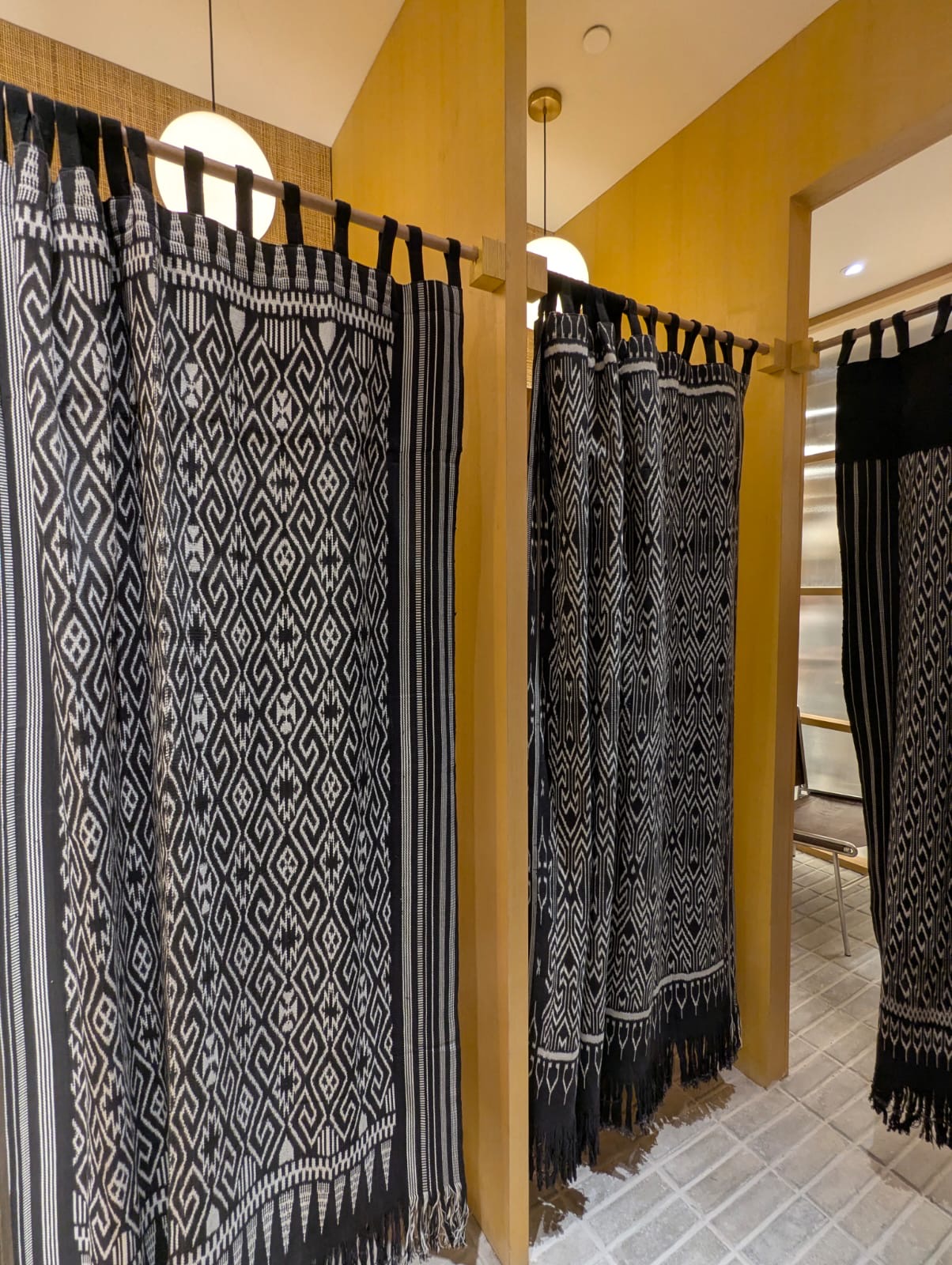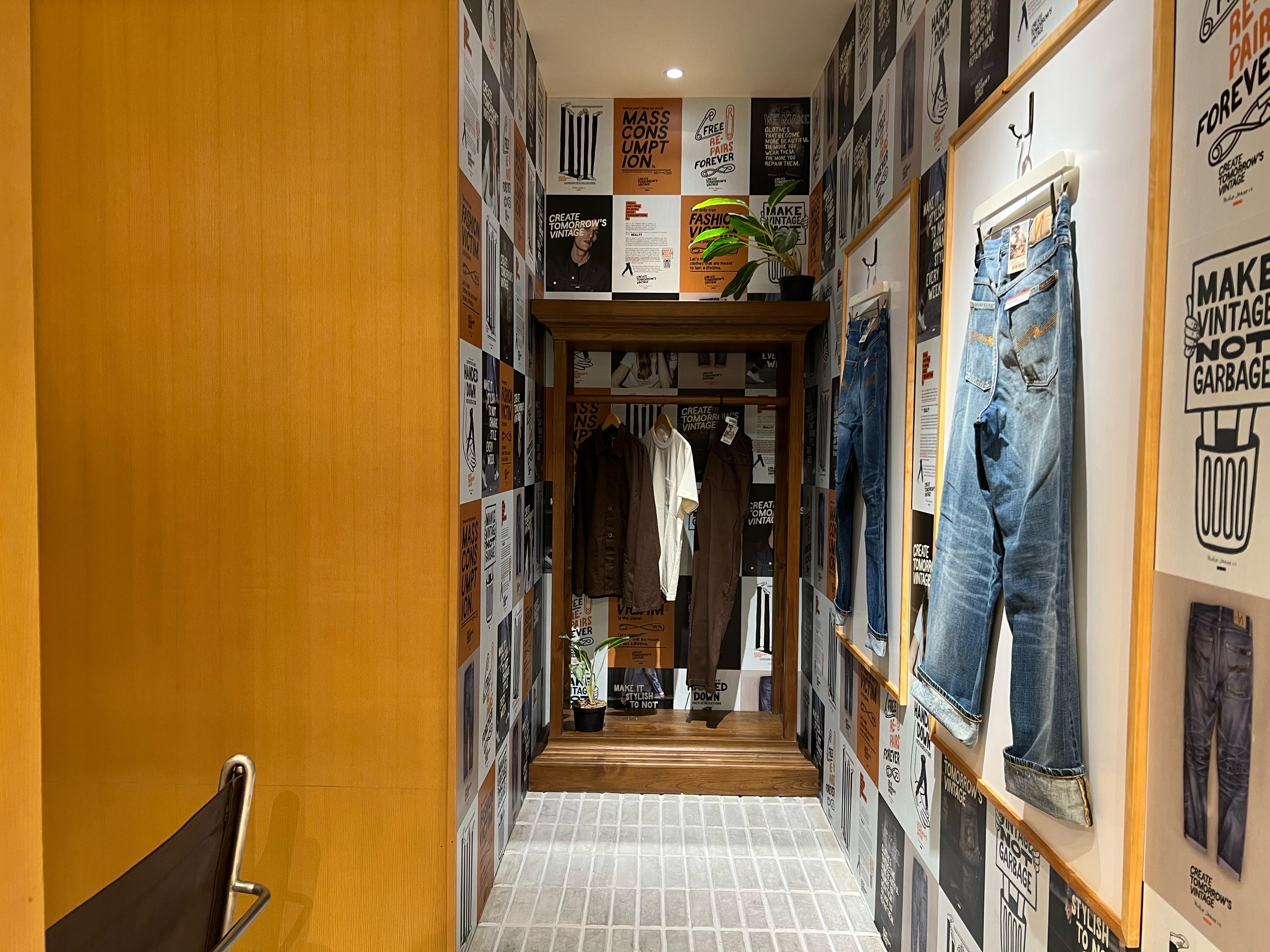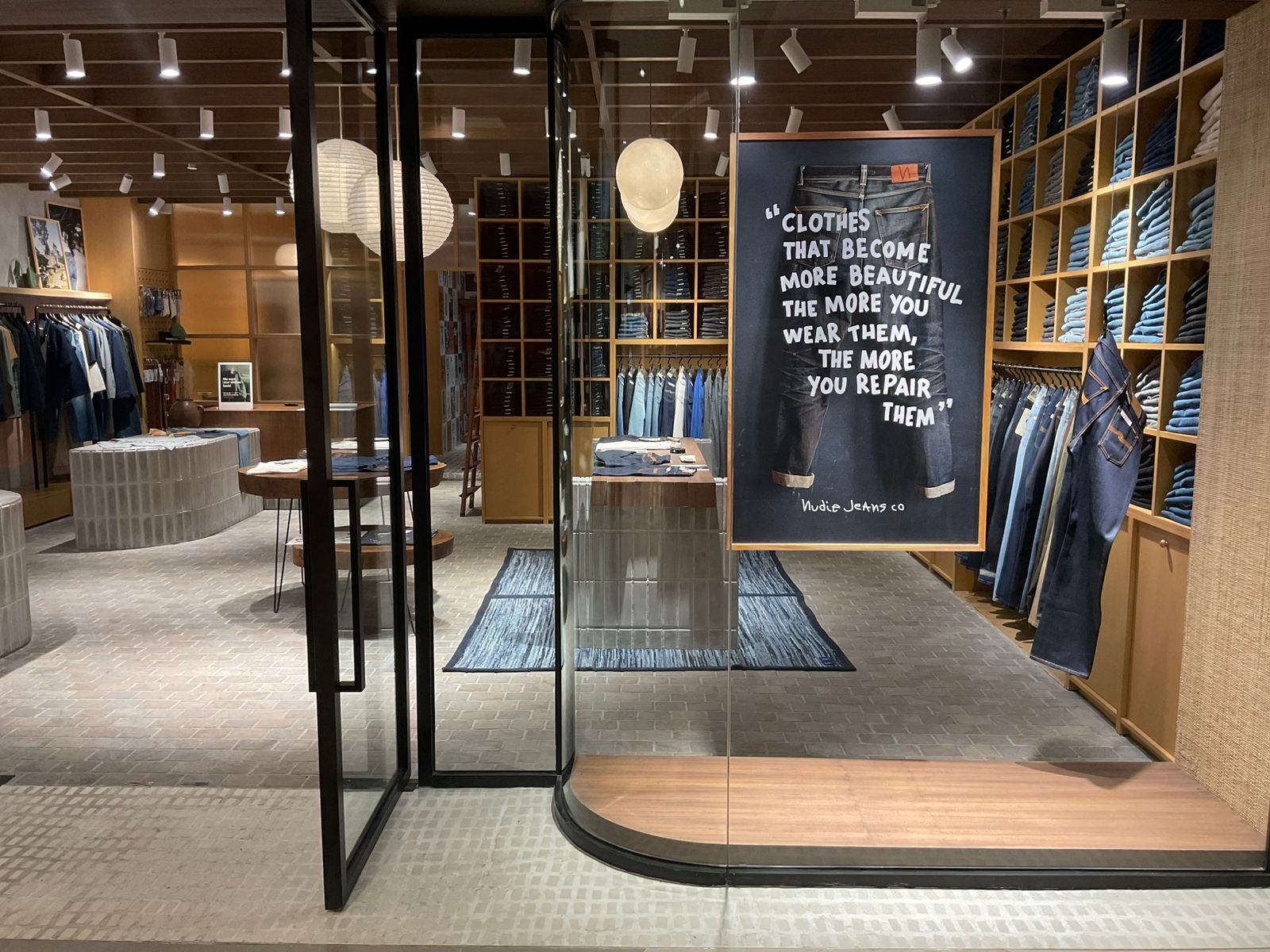
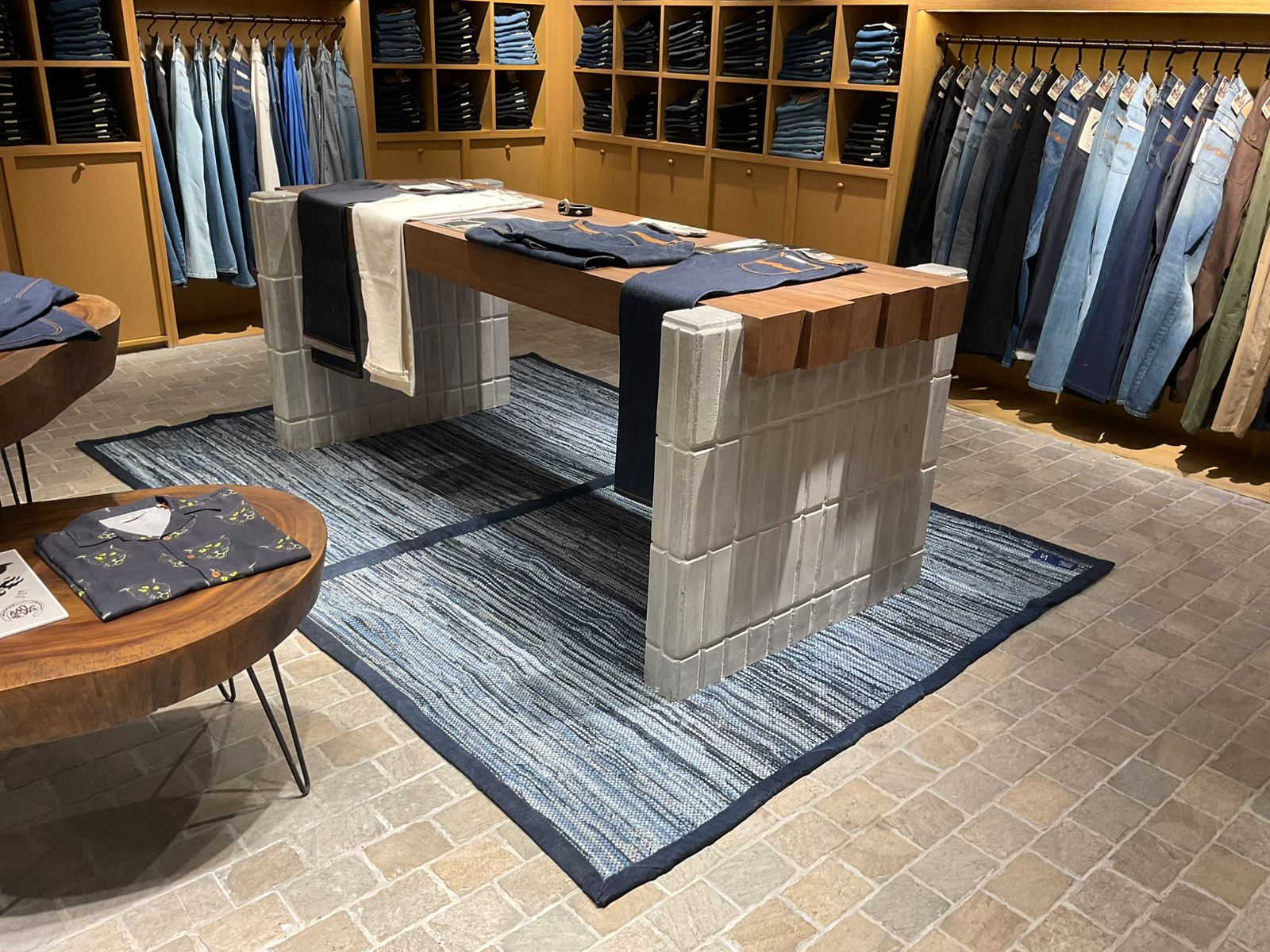
Image Credit : Nudie Jeans Indonesia
Project Overview
The Nudie Jeans Bandung Repair Store redefines denim retail as a values-driven, low-impact, and highly tactile experience. Designed around the brand’s core philosophy, “clothes become more beautiful the more you wear them, the more you repair them”, the store positions sustainability not as an add-on, but as the central retail proposition.
Rather than showcasing a product alone, the space brings circular fashion to life. A visible repair station sits proudly at the shopfront, inviting customers to participate in a garment’s ongoing lifecycle. Every material, detail, and layout choice reinforces a vision of fashion that values longevity, transparency, and cultural connection.
Through local sourcing, innovative reuse of materials such as bricks made from recycled plastic and rugs made from traded-in, un-useable nudie jeans, as well as local social sustainability partnerships, the store shows that a low-impact retail future is not only possible, it’s beautiful.
Project Commissioner
Project Creator
Team
Rebecca Vulic, Kristine Vibar, Bryce Alton
Project Brief
The project aimed to design a retail environment that would make Nudie Jeans’ core philosophy—“Clothes become more beautiful the more you wear them. The more you repair them.”—tangible for customers. The store needed to be more than a point of sale; it had to embody the brand’s commitment to creating tomorrow’s vintage and act as a physical expression of sustainability, longevity, and conscious consumption.
Drawing inspiration from the Japanese philosophy of wabi-sabi, the design celebrates beauty in imperfection and the passage of time. This philosophy was to be realised through warm, natural textures, earthy tones, and an authentic material palette that prioritised locally sourced and recycled elements.
A key brief requirement was to integrate a fully operational repair station at the forefront of the customer experience. This would not only offer a functional service but also communicate the brand’s ethos in a direct and visible way. Sustainable innovation was central to the design, with features including recycled bricks made from locally rejected plastic waste, upcycled traded-in and unusable Nudie jeans, locally sourced timbers, and furniture crafted from coffee waste.
The project also sought to reflect social sustainability. Partnerships with artisan groups such as Threads of Life and The Bebali Foundation were to bring handwoven textiles into the store, supporting women in remote communities while preserving traditional craft.
Ultimately, the brief called for a space that could serve as a retail outlet, workshop, and brand statement, merging functionality with environmental and cultural responsibility.
Project Innovation/Need
At its heart, this project is a provocation: what if the most important part of a fashion store wasn’t what you bought, but how you kept it?
The Nudie Jeans Bandung Repair Store challenges retail norms by repairing, not consuming, the hero of the space. A visible, working sewing machine at the shopfront transforms garment repair into a brand signature. It invites engagement, builds trust, and disrupts expectations of what a fashion store should prioritise.
Material innovation was also critical. We partnered with local fabricators to create custom bricks from plastic waste rejected by traditional recycling streams—giving landfill-bound material new value. Coffee waste was repurposed into sculptural furniture, and denim offcuts were transformed into rugs.
This approach not only reduces the store’s environmental footprint but also strengthens its storytelling. Every piece of the space contributes to a unified narrative: that quality, craft and care are worth investing in.
As a retail concept, it pushes beyond product and into purpose, redefining what a denim store can be in a world urgently needing better models of consumption.
Design Challenge
The biggest design challenge was turning an ethical philosophy into a compelling retail experience, without falling into greenwashing or aesthetic clichés.
Material sourcing posed early constraints. Indonesia’s supply of certified sustainable materials is limited, so we needed to build a network of local partners and develop new material solutions that aligned with both our sustainability goals and the brand’s premium positioning. The recycled plastic bricks and up-cycled denim rugs emerged from this process of creative problem-solving.
Another challenge was spatial planning. The decision to position the repair station at the shopfront reversed conventional retail logic. This required careful consideration of layout, acoustics, and sight-lines, to ensure the store felt inviting and functional while spotlighting a non-commercial service.
We also had to coordinate production across a range of small-scale, artisan, and experimental suppliers, including Threads of Life and The Bebali Foundation, who hand-wove the fitting room curtains. This required intensive collaboration, cultural sensitivity, and time management.
Ultimately, the project’s challenges reinforced its strength: this is not a space of shortcuts. It’s a space that embodies the patience, depth, and rigour that conscious design demands.
Sustainability
Sustainability was the foundation, not the finish, of this project. Our approach integrated environmental, economic, and social sustainability across every decision point.
Environmentally, the materials speak volumes. Recycled plastic waste was used to create durable bricks for key touch-points: the repair station, fitting rooms, POS, and display tables. FSC-certified timber was locally sourced and used across ceiling battens, joinery, and partitions. Acoustic ceiling panels were made from low-impact wood wool. Even furniture, crafted from coffee waste, champions waste diversion and local circularity.
Denim offcuts from traded-in Nudie garments were transformed into display rugs, reinforcing the idea that end-of-life garments can have second lives. The fitting room curtains were hand-woven by Indonesian artisans through Threads of Life and The Bebali Foundation, providing economic support to women’s weaving cooperatives and preserving endangered textile traditions.
Social sustainability was just as important. We intentionally sourced labour, materials and design input locally, supporting craftspeople, reducing transport emissions, and embedding community into the brand experience.
This is sustainability without compromise: aesthetically refined, functionally durable, and ethically rich. It proves that retail environments can go beyond compliance and actively shape a better future.
Interior Design - International Retail
This award celebrates innovative and creative building interiors, with consideration given to space creation and planning, furnishings, finishes and aesthetic presentation. Consideration given to space allocation, traffic flow, building services, lighting, fixtures, flooring, colours, furnishings and surface finishes.
More Details


